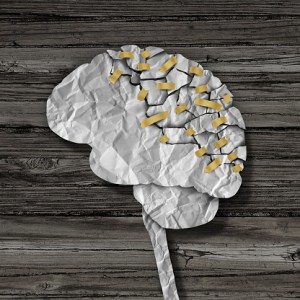 You heard it here first, folks. The ongoing research efforts to understand how the brain functions and heals might get a huge boost from researchers working with lowly pre-frogs. Dr. Amy Sater, chair of the University of Houston’s biology and biochemistry department, recently spoke to the Houston Chronicle about a new two-year study that will examine how different drugs and compounds interact with certain cells in injured tadpoles.
You heard it here first, folks. The ongoing research efforts to understand how the brain functions and heals might get a huge boost from researchers working with lowly pre-frogs. Dr. Amy Sater, chair of the University of Houston’s biology and biochemistry department, recently spoke to the Houston Chronicle about a new two-year study that will examine how different drugs and compounds interact with certain cells in injured tadpoles.
The study will focus on a particular part of the brain’s structure known as astrocytes. Almost any close-up picture of synapses or brain structure features these little star-shaped structures; they are responsible for all sorts of tasks, but their most important function is to repair injuries and keep other brain structures healthy. Naturally, anything that would stimulate astrocytes to repair damaged tissue faster or more effectively would be a godsend for TBI victims.
But… why tadpoles?
Dr. Sater explained it to the Houston Chronicle like this:
“It’s a way to do a very broad scan in a reasonable amount of time. Using tadpoles, you can generate a whole bunch of embryos, and they will grow up to be a whole bunch of tadpoles. You can make them all be genetically the same. We’re going to screen 12,000 compounds and see if we can identify a small handful that would produce a desired effect. That’s no something that’s really feasible with a mouse. It’s just way too expensive. There are way too many mice. But it’s pretty straightforward to do with tadpoles.”
This important work is just the latest example of the creativity and dedication that researchers around the world are pouring into brain injury research. While we eagerly await breakthroughs, however, more and more people are living with the effects of TBI every day. These statistics from the Centers for Disease Control and Prevention give some idea of the scope of the problem. Of the estimated 1.7 million people who sustain a TBI every year:
- 52,000 die,
- 275,000 are hospitalized and
- 365 million are treated and released from an emergency department.
There is no estimate available for the number of people with non-fatal TBI seen outside of an emergency department or hospital or who receive no care at all.
Always see a doctor after any accident
Traumatic brain injury is so common, and so pervasive, that we don’t even really know how many people are affected. Mood swings and odd behavior can indicate an underlying problem. If you notice changes in your loved one after an accident, even after months have gone by, your loved one may be a TBI victim. Seek professional medical attention if you suspect any problem; time saved can mean brain saved.
If an accident left your loved one with a traumatic brain injury, you may be entitled to compensation for medical bills, lost wages, and continuing care. The experienced traumatic brain injury attorneys at the Rocky McElhaney Law Firm can evaluate your case and help get you the compensation you deserve. Call 615.246.5549, visit our offices in Nashville, Gallatin or Knoxville, or contact us today for a free consultation.
